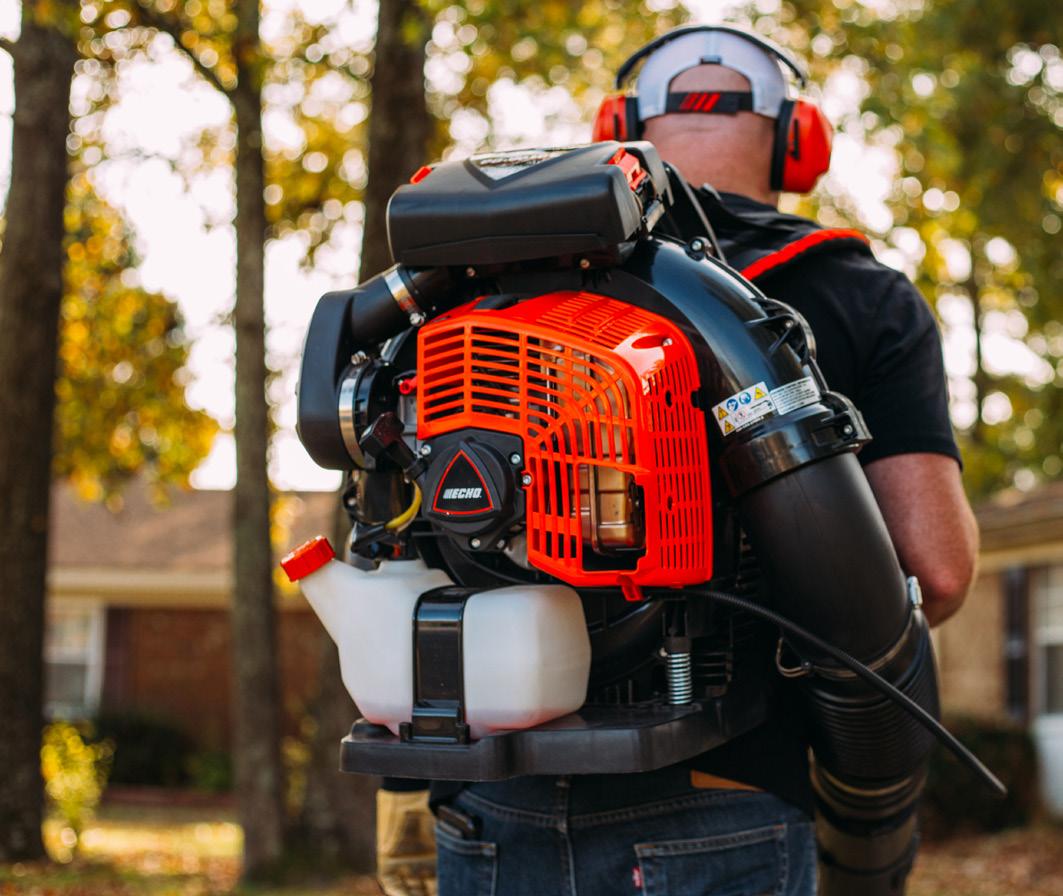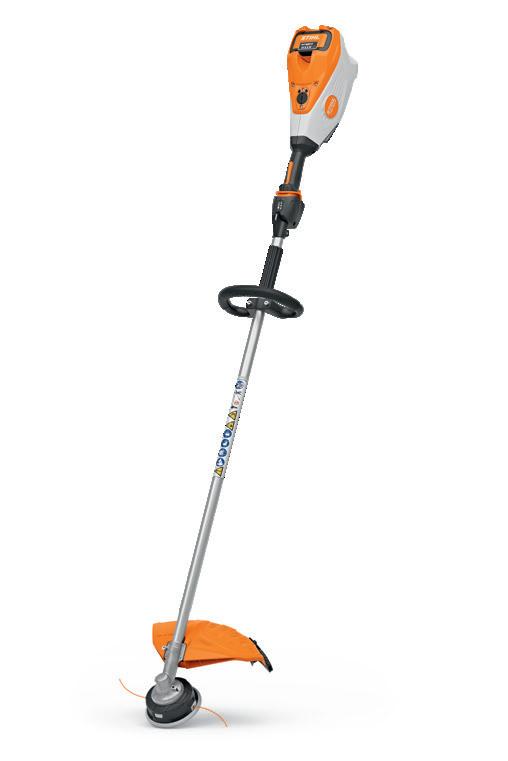HR TOOLKIT FREE HELP FOR MEMBERS
ADVANCING YOUR CAREER & BUSINESS
NEW CFIA SUPPORT FOR SHIPPING PLANTS
NEW
FORMAT
FOR NATIONAL AWARDS OF LANDSCAPE EXCELLENCE

COMMUNITY GREEN SPACES
INTEGRAL TO CANADA
PROFILE ON CNLA PRESIDENT BILL HARDY





ADVANCING YOUR CAREER & BUSINESS
NEW CFIA SUPPORT FOR SHIPPING PLANTS
NEW
FOR NATIONAL AWARDS OF LANDSCAPE EXCELLENCE

COMMUNITY GREEN SPACES
INTEGRAL TO CANADA
PROFILE ON CNLA PRESIDENT BILL HARDY




President Bill Hardy, CLHM - BC
Past President Anthony O’Neill - NL
Vice President, Anita Heuver - AB
Communications Committee Chair
Second Vice President Alan White - ON Climate Change Adaptation Chair
Treasurer, Professional Jeff Foley, CLHT, CLHM - BC Development &, Human Resources Chair
BCLNA Heike Stippler, CLD - BC
Landscape AB Jeff Oudyk - AB
Landscape SK Leslie Cornell - SK
MBNLA Guy Dowhy, RSE, CLHT, CLHM - MB
Landscape ON Dave Wright, CLD, CLHM- ON
Landscape NS David Thompson - NS
Garden Centres Robin Godfrey - NS Canada Chair
Landscape NB/PEI, Kevin Nauss, CLHM - NB
Member Services Chair, Insurance Chair
Landscape NL Peggy Head - NL
LANDSCAPE CANADA WELCOMES the European Landscape Contractors Association (ELCA) to the west coast from Sept 17 - 21. The host hotel will be in beautiful downtown Vancouver within a short walk from the Pacific ocean. This is an opportunity for our industry to show British Columbia’s leadership in the green movement, and to demonstrate various ways in which landscaping can emphasize on improving the environment to create healthier places to live. The delegates will visit numerous commercial and residential landscape locations, as well as gardens which illustrate innovative energy efficiency and sustainability systems like solar heating and green roofs.


To get in on the excursion, please contact: Anne Kadwell, Landscape & Retail Sector Specialist anne@cnla-acpp.ca
4 DAYS OF EXCURSIONS
7,500
CANADA’S
For circulation or content please contact communications@cnla-acpp.ca
Landscape Canada Peter Guinane - ON Committee Chair
Research Chair Vic Krahn, CLHT - SK Government Christene LeVatte CLHM, CLD - NS Relations Chair
Growers Canada Chair Jeff Olsen - ON
Executive Victor Santacruz, CLHM, CAE, Director victor@cnla-acpp.ca
Deputy Executive Rebecca Doutre, CLHM, CAE, Director rebecca@cnla-acpp.ca
Finance & Cheryl Gall, CAE
Administration Manager cheryl@cnla-acpp.ca
Growers Sector Jamie Aalbers Specialist jamie@cnla-acpp.ca
Communities in Bloom Sonia Parrino Program Specialist bloom@cib-cef.com
Landscape & Anne Kadwell, CLHT Retail Sector Specialist anne@cnla-acpp.ca
Industry & Government Leslie Sison, CAE Relations Specialist leslie@cnla-acpp.ca
Communications Dave Mazur Specialist dave@cnla-acpp.ca
Communications Lauryn Mullan
Coordinator lauryn@cnla-acpp.ca
Media Stuart Service
Coordinator stuart@cnla-acpp.ca
Content & Design Sarah McIntosh
Coordinator sarah@cnla-acpp.ca
Member Services Teagan Schroeder Specialist teagan@cnla-acpp.ca
Member Services Cathy Lam Coordinator cathy@cnla-acpp.ca
Member Services Nicole Xavier Coordinator nicole@cnla-acpp
Certification Edith Oyosoro Coordinator edith@cnla-acpp.ca
Environmental Policy Frydda Sandoval Coordinator frydda@cnla-acpp.ca
Minor Use/IPM Peter Isaacson B.Sc. MPM Coordinator peter@cnla-acpp.ca
 BY STUART SERVICE
BY STUART SERVICE
Prior to and during his time with the CNLA, Bill was education chair at the BCLNA, where he “took certification under my wing.” He noted that the biggest impact of his tenure was copying Landscape Ontario’s education program. Although not as big as LO’s program, Bill’s west coast imitation consistently drew an annual attendance of about 600 people and created a stable revenue source for the provincial association. “Education has probably always been at the top of my list for things that I want to accomplish,” he said. “I was on the BCLNA board for over 20 years as well, and I often refused to step up into other positions – like executive positions or whatever. My passion was with the education side, and I didn’t want to lose my portfolio in education.”
Bill Hardy, CLHM wv- CNLA President
BILL HARDY TRAVELED A UNIQUE PATH through the CNLA over more than two decades to become the association’s newest president. His introduction to the CNLA occurred soon after building the first searchable plant database in North America. Bill and a colleague created what was like the earliest stages of a website before the Internet, building for the British Columbia Landscape & Nursery Association (BCLNA) a Buyers’ Guide Directory on a Bulletin Board Service accessible via dial-up modem.
At the time, Bill attended CNLA meetings as a guest while he was tasked with re-purposing the database for Canadanursery.com, which was the association’s first foray onto the web. At the same time, Bill was working to launch the Landscape Certification Program nationwide. Due to being a regular at the CNLA with ongoing projects and frequent presentations, an IT position was created for him on the board.

A policy at CNLA, which only allows seats on the executive board to be occupied by business owners, “Always annoyed me,” Bill said with a laugh. “I always felt I contributed in a huge way, and I was able to do that because I had the support of the employers that I was working for.”
Anne
Kadwell, Landscape & Retail Sector Specialist anne@cnla-acpp.ca www.cnla.caFrydda
Sandoval, Environmental Policy Coordinator frydda@cnla-acpp.ca www.cnla.caWhen the International Garden Centre Association toured British Columbia in 2008, Bill and his wife Renata Triveri were captivated upon the IGCA’s visit to Trice Farms Pond & Garden in Maple Ridge, BC. Bill and Renata told the owner to give them a call if they ever considered selling the business. That call happened a few years later in 2011, and on January 1 of 2012, Bill and Renata were now owners of Grow & Gather (Trice Farms Ltd.). This new business venture opened the door for Bill to join the executive committee and, as of February 7, to become President of the CNLA.
Leslie
Sison, Industry & Government Specialist leslie@cnla-acpp.ca www.cnla.ca
Edith
Oyosoro, Certification Coordinator edith@cnla-acpp.ca www.cnla.ca“I’ve been involved with the association for so long that being CNLA President is business as usual,” he said. “If I had to pick a theme, for the first year that would be: ‘Stop, reflect and focus.’ Let’s look at what we need to prioritize and focus on that. The second year theme would be: ‘Stop, reflect and finish.’ I want to help things along and wrap up some of our longstanding projects.”
Stuart
Service, Media Coordinator stuart@cnla-acpp.ca www.cnla.ca

 BY STUART SERVICE
BY STUART SERVICE
PREPARATIONS ARE UNDERWAY for what is bound to be a spectacular celebration of exceptional landscaping at the Canadian Nursery Landscape Association’s 20th edition of the National Awards of Landscape Excellence.
The format of the gala, set to take place on August 9 at the Fairmont Winnipeg, is going to be a little different this year. The finalists are all invited and won’t know who the winners of the Caterpillar National Award for Residential Landscape Construction, the Caterpillar National Award for Commercial Landscape

Construction, the National Award for Residential Landscape Maintenance, the National Award for Commercial Landscape Maintenance, and the National Award for Landscape Design are until the moment the winner is read aloud on stage. We’re hoping this infuses this year’s national awards with some of that Oscar’s flair.
In the past five years that I’ve been with the CNLA, I’ve been shipped all over the country to visit our winning projects to produce nice videos that tell the story of a project and the people behind its inspiration. However, what we’ve discovered is that, come summertime when the awards gala takes place, the winners of each award are the worst-kept secret. A bit of passive detective work during the cocktail hour before the event is enough to sniff out who to expect to see on the podium doing an acceptance speech.
But not this year! We have contacted and will be interviewing all 15 finalists and are very excited to be featuring all of them throughout the lead up to the big day on August 9. If you haven’t already, make sure to take a moment to follow us on Instagram (@cnla_acpp), like us on Facebook, (facebook.com/ canadanursery), and subscribe to us on Youtube (youtube. com/@CNLA) for updates about the landscape industry from a national lens, as well as to learn about the people and stories that went into realizing these landscapes for each of the finalists’ extremely happy clients.
And I still have no idea who won! I’ve told Lauryn Mullan, organizer of this year’s National Awards, to not tell me who any of the winners are until the day of the event – even if I change my mind, which I have! But I still haven’t got a clue who. If you’re ever looking for someone capable of keeping sensitive state secrets, Lauryn’s your person – she will not fold under questioning with regards to who won, and has this Doyle Brunson-esque poker face that gives absolutely nothing away.
But I think we’ll like it better this way. It’s going to make for an amazing, shared experience when seeing those genuine, excited reactions when each winner is revealed.
THE FINALISTS FOR THE 2023 NATIONAL AWARDS OF LANDSCAPE EXCELLENCE ARE:

CATERPILLAR National Award for Residential Landscape Construction:

Cedar Springs Landscape Group for “Wonderful in White”
Fossil Landscape Construction for “Modern Luxury”
The Landmark Group for “Tranquil Hideaway”

Jamie
National Award for Residential Landscape Maintenance: It’s About Thyme Inc. for “Urban Oasis”

Rockscape for “Skeleton Lake Cottage”
Snider Turf for “Paradise Lake Retreat”
Anne
National Award for Landscape Design:
Blue Bear Landscape Construction for “Cypress Moutain”
Planta Landscape Inc for “Britannia Residence”
Welwyn Wong Landscape Design for “Hillside Retreat”
Frydda
CATERPILLAR National Award for Commerical Landscape Construction:

Oakridge Group for “Gardens of Pillar & Post”

Terra Vista Landscape Group for “Wander the Resort”
Trim Landscaping for “Peggy’s Cove”
Leslie Sison, Industry & Government Specialist leslie@cnla-acpp.ca www.cnla.ca
National Award for Commercial Landscape Maintenance: Bos Landscaping for “Janco Steel”
ParaSpace Landscaping Inc for “Maquinna”
Edith Oyosoro, Certification Coordinator edith@cnla-acpp.ca www.cnla.ca
Strathmore Landscape Contractors for “Consilium Place”
Stuart Service, Media Coordinator stuart@cnla-acpp.ca www.cnla.ca
JULY 9-12th


Garden Centres Canada's next National Garden Centre Summit will be in Vancouver, British Columbia from July 9-12. Garden Centres Canada’s annual national retail Summit is a networking and educational opportunity for independent garden centres owners and managers to come together and discuss the latest trends and patterns, and share innovative ideas. We are planning a fantastic schedule of engaging events with industry professionals sharing their knowledge and insight. New speakers, locations, yummy places to eat and a half-day extension to the tour.
SPONSORED BY








“We can’t wait to see you in Vancouver!
ROBIN GODFREY, Garden Centres Canada Chair
HUNTERS
www.huntersgardencentre.com
Your morning coffee stop.
Hunter Garden Centre have two stores one in Surrey, BC and the other in the hub of Kitsilano. Hunters Garden Centre was founded in the fall of 1953. They are celebrating their 70th anniversary. We look forward to touring with Miles Hunter who is a 3rd generation owner.

GROW & GATHER
www.growandgather.com
Grow and Gather has a full complement of culinary, floral, landscape, aquatic plants, and garden utilities, plus an outstanding array of pond supplies. This is a destination for customers who come for their homegrown and locally sourced garden plants including their famous HUGE hanging baskets.
AMSTERDAM GREENHOUSE & GARDEN CENTRE
www.amsterdamgreenhouses.com
Over the past 44 years, Amsterdam Greenhouses and Garden Centre has become both a complete, year-round garden centre as well as a wholesale producer of quality plants.

DR. MELINDA KNUTH

We are excited to have the young and enthusiastic Dr. Melinda Knuth, Assistant Professor of Horticultural Science from North Carolina State University. Want to engage more often and better with your consumer? In her presentation, Influence Your Consumers, Dr. Knuth will share key insights from her research on how customers think, make purchase decisions, and create a company culture that inspires them to buy your products!
ART VANDEN ENDEN

Art Vanden Enden loved every minute of his 44-year garden centre career with Weall and Cullen and Sheridan Nurseries. Art will be highlighting how training and development leads to the success of your business — 44 years of experience rolled up into one hour!

www.artsnursery.com


Founded in 1973, Art’s Nursery Garden & Home, is a destination 10+ acre garden centre, nursery and landscape supply yard located in Surrey BC, offering a huge selection of plants, pots and all manner of gardening related products in a relaxed and friendly atmosphere.




www.cedarrim.com
Since Cedar Rim’s humble beginnings in 1978, it has expanded from a small, family run operation to one of the largest Retail and Wholesale nurseries on the West Coast of British Columbia.
www.katosnursery.com
Dinner will be enjoyed in Kato’s greenhouse, featuring spectacular views. Kato’s started in 1952 on 20 acres of land near Abbotsford. The 70’s and 80’s saw rapid growth with more and more of the property being converted to above ground growing facilities as well as more greenhouse structures. There are now 10 additional acres adjoining the original 20 acres and a 1.25 million litre irrigation pond which is able to reclaim 70% of the surface water and recycle it.
TOM SHAY
Tom Shay teaches how to improve the operation and profitability of the business. Disrupting or Prompting; Does this affect how you approach business? We will examine multiple businesses and see why some have died, withered, or grew with more growth on the horizon.
LORNA McLAREN
Lorna McLaren is an award-winning trainer who helps organizations cultivate powerful relationships through specific communication strategies that inspire positive outcomes while reduc ing conflict and stress.
Leadership that Inspires Positive Results while Reducing Stress -This interactive workshop is about camaraderie and learning fast, fun, and focused tips.
 Lorna McLaren. Master the MasterTheMomentCommunication.com
REGISTRATION CLOSES JUNE 9, 2023!
Lorna McLaren. Master the MasterTheMomentCommunication.com
REGISTRATION CLOSES JUNE 9, 2023!

THIS YEAR, GARDENERS ACROSS THE COUNTRY are encouraged to add a dash or a splash of purple to their planting arrangements.

Communities in Bloom chose the colour purple as its theme this year for a variety of reasons, as it symbolizes spiritualism, imagination, and royalty. In light of the challenges faced since the onset of the pandemic, CiB National Chair Susan Ellis said that it is time to embrace those relaxing and introspective properties of purple and infuse it with elements in garden designs.

“It’s not that you just have to use purple – we’re not suggesting that,” Ellis said. “But if you use it as a contrasting colour with yellows, or with oranges, it shows off other colours really well while also demanding its own attention.”

Different colours evoke distinct emotions. For example, when CiB proclaimed yellow as its colour theme in 2021, this was selected to contrast a dire state across the world in need of hope, cheerfulness, and sunnier dispositions.
With the global pandemic now further away in our collective rearview mirror this year, purple will feed our creativity and serve as a conduit for personal growth and self-expression.
Ellis observed the power of purple first hand, noticing that her 6-year-old granddaughter, who enjoys collecting colourful minerals, considers the dark purple agates as the favourite among her collection. “And there’s a reason for that,” Ellis said. “She’s a creative little soul, and purple is a grounding kind of colour.”
Tina Liu, a judge with Communities in Bloom, and a landscape architect at the National Capital Commission, leads the design of year-round floral displays in the nation’s capital. Liu said that she incorporates lots of purple at several NCC displays.
“With the combinations of colours, purple means different things,” she said, adding that she uses purple, silver and gold at the National War Memorial in both the plantings and landscape lighting. At a garden surrounding a statue of Queen Elizabeth on horseback, the purple flowers represent royalty, bravery and peace.

“Purple really goes with any colour,” Liu said.
Jamie Aalbers, Growers Sector Specialist jamie@cnla-acpp.ca www.cnla.ca

Anne Kadwell, Landscape & Retail Sector Specialist anne@cnla-acpp.ca www.cnla.ca
Frydda Sandoval, Environmental Policy Coordinator frydda@cnla-acpp.ca www.cnla.ca
Leslie Sison, Industry & Government Specialist leslie@cnla-acpp.ca www.cnla.ca




Edith Oyosoro, Certification Coordinator edith@cnla-acpp.ca www.cnla.ca
“Be sure to visit Commissioners Park in Ottawa this summer, where the NCC is building a purple-themed garden on behalf of Community in Blooms’ Plant Purple campaign: Plants Love You.






Stuart Service, Media Coordinator stuart@cnla-acpp.ca www.cnla.ca

Purple was chosen because it symbolizes spiritualism, imagination, and royalty. It’s time to embrace those relaxing and introspective properties of purple and infuse it with elements in garden designs.
CNLA IS A PROUD PARTNER with the Canadian Agricultural Human Resource Council (CAHRC). Our partner has provided labour based webinars tacking such issues as Dealing with Labour Agencies and Using The Temporary Foreign Worker Program. CNLA also has staff and members who sit as stakeholders representing our industry in projects CAHRC works on regarding labour and agriculture issues.
One things that we hear a lot about at CNLA is how the day to day running of a business can be challenging, especially
for smaller companies who do not have a proper HR person on staff. With all of the legal requirements, policies and processes that are required, it is often a daunting area of running a business. CAHRC has made this a little easier for us by creating the HR Toolkit, which, as a CNLA member is free to access.
While the Toolkit seems very Farm-Centric (it was developed with farms in mind), CAHRC is working to make this feel more inclusive. In the meantime, if you substitute the work ‘Farm’ for the word ‘Business’ this tool very helpful. The main overview of topics include:

l Recruitment, Selection and Hiring

l Compensation and Benefits
l Worker Performance
l Succession Planning
l Workforce Planning
l HR Policies
l Health and Safety
l Workplace Wellness
l Diversity and Inclusion
l Foreign Workers
The toolkit is rife with information, templates and learning modules. If you are interested in accessing the HR Toolkit simply log on to the CAHRC website https://cahrc-ccrha.ca/ and you can either enter HR Toolkit into the search bar at the top right of the screen, or you can scroll down the page to the section called Tools at your Disposal and there is a link there. Or simply go to https://hrtoolkit.cahrc-ccrha.ca/
Here is a log in for FREE access:
Organization Name: CNLA
Discount Code: CNLAToolkit
There have been rumblings of changes coming to the landscape industry where gas-powered equipment bans have been in the news. On July 1, 2022 California enacted a ban on gas-powered lawn equipment, including lawnmowers, leaf blowers and snow blowers. The sale of new gas-powered leaf blowers is expected to end by 2024. While California was the first to implement a statewide ban, this is gaining traction across the US.

It is always difficult to find good people with the right kind of skills for your farm. The farm labour shortage has been identified as one of the greatest business risks in agriculture today. Putting effort into finding and keeping good people with effective human resource management can also save your farm money. This is especially important during a labour shortage.
The AgriHR Toolkit, developed by Canadian Agricultural Human Resource Council (CAHRC) through extensive consultations with producers across Canada, offers assistance every step of the way with guides, templates, resources, and the critical questions that you need to ask and answer about your business.

It offers tools such as an Employee Handbook template you can download and customize for your farm and employees that includes key policies that are becoming components of the Temporary Foreign Worker Program (TFWP) such as the Abuse Free Workplace policy.
The AgriHR Toolkit includes targeted, practical advice based on years of research and field testing with readyto-use tools and templates including a policy manual, orientation check list, job descriptions, and job offer letters to help save you time and money.

IT’S EVERYTHING YOU’LL NEED TO FIND, RETAIN AND SUPPORT YOUR EMPLOYEES.
hrtoolkit.cahrc-ccrha.ca
INSTRUCTIONS T O ACCESS
THE AGRIHR TOOLKIT
Each member can sign up on their own with a username and password with whatever email and username you assign. Please use your organization’s discount code when you sign up and it will drop the price to $0 when you use it to check out. This provides one year or access to the CAHRC AgriHR Toolkit at no charge.

When the association renews, the organization is provided with another discount code and each member will be able to renew their toolkit subscription at no charge, using some new coupon code.
ORGANIZ ATION N AME:

It is often only a matter of time before changes in the US make their way to Canada. In January, the Vancouver City Council unanimously passed a motion to get the city to phase out gas-powered landscape maintenance equipment, which includes lawn mowers, chainsaws and hedge trimmers, for personal and commercial use by 2024. “Gaspowered leaf blowers have been banned in the West End for two decades, a recognition of the downtown neighbourhood’s high level of density compared with the rest of the city. But with many parts of the city now denser and more residential, a citywide ban makes sense” (Chan, 2022)
As we often see, BC tends to see issues arrive first and then continue across Canada. Calgary was considering looking at a policy similar to that in Vancouver, but for now the conversation has faded away. Ontario was also considering similar legislation but has also stopped for now. As of today (April 2023) no other provinces have reported any considerations on gas-powered equipment bans. We will continue to monitor and work towards developing actions in advance of any new legislation.
If you have seen or read anything happening in your area, continued on page 12
we respectfully ask that you keep us abreast of any new information on this issue that comes to light in your province. CNLA is interested in a proactive approach so any update will assist us as we move forward. Please feel free to send any information to leslie@cnla-acpp.ca
The Governemnt of Canada is constantly offering grants to assist in different areas. These grants come and go and are designed to assist in various needs. CNLA tries to share these with members as often as we can. Here is what is currently available:
CURRENT:
Apprenticeship Incentive Grant -
l Applications are being accepted on an ongoing basis with no current end date
l The Apprenticeship Incentive Grant (AIG) helps you pay for expenses while you train as an apprentice in a designated Red Seal trade. (Landscape Horticulture is a designated Red Seal Trade)
l The AIG is a taxable grant worth $1,000 per level, awarded to registered apprentices
l You must complete your first year/level (or equivalent) to apply for the AIG
l You can apply for this grant twice during your training (for a maximum of $2,000)
l You can apply for your second AIG after completing a second year/level (or equivalent) of training
To be eligible for the AIG, you must:
l be a Canadian citizen, permanent resident, or a protected person
l not be a high school student
l demonstrate registration and completion with acceptable provincial/territorial AIG supporting documents
l be registered with a provincial/territorial apprenticeship authority as an apprentice in a designated Red Seal trade.
l You may receive Employment Insurance (EI) benefits as an apprentice if you:
l have worked between 420 and 700 hours; and
l meet all of the eligibility requirements to make a claim.
Apprenticeship Completion Grant -
l Applications are being accepted on an ongoing basis with no current end date.
l The Apprenticeship Completion Grant (ACG) is a onetime taxable cash grant lifetime amount of $2,000 per person for registered apprentices. It is for registered apprentices who:
- successfully complete their apprenticeship training program, and

- get their journeyperson certification in a designated Red Seal trade
l In order to be eligible for the grant, you must have successfully completed your apprenticeship program.
To be eligible for the ACG, you must:
l be a Canadian citizen, permanent resident, or a protected person
l not be a high school student
l demonstrate completion of an apprenticeship program with acceptable provincial/territorial ACG supporting document, within an eligible apprenticeship program
l be a certified journeyperson who completed your apprenticeship training program in a designated Red Seal trade
How the ACG affects Employment Insurance (EI) benefits
You may receive Employment Insurance (EI) benefits as an apprentice if you:
l have worked between 420 and 700 hours and meet all of the eligibility requirements to make a claim
l The Apprenticeship Completion Grant is not considered earnings from employment. It does not affect your Employment Insurance (EI) benefits. You do not need to include these grants in your EI reports.
Some recently closed Grants and Funds include:
l Apprenticeship Incentive Grant for Women
l Canada Summer Jobs wage subsidy
l Canadian Apprenticeship Strategy - Women in the Skilled Trades Initiative
l Sectoral Initiatives Program
The Scientific Research and Experimental Development (SR&ED) tax incentives encourage businesses of all sizes and in all sectors to conduct research and development (R&D) in Canada.
https://www.canada.ca/en/revenue-agency/services/ scientific-research-experimental-development-taxincentive-program/overview.html
If you are doing SR&ED work, you can use your pool of deductible SR&ED expenditures to:
l reduce your net income for tax purposes in the current year
l deduct them in a future year
l Your investment tax credits (ITCs) will be at least 15% and can be 35% of your qualified SR&ED
continued on page 14
If you are doing SR&ED work, you can use your pool of deductible SR&ED expenditures to:
Your ITCs will be at least 15% and can be 35% of your qualified SR&ED expenditures.
Helping you assess whether your R&D work is eligible
If you have any remaining ITCs in the current year, you may be eligible to get a refund.
If you have any current year unused ITCs, you can carry them back 3 years or forward 20 years.
The CRA’s Scientific Research and Experimental Development (SR&ED) Tax Incentive Program is the largest Government of Canada program supporting research and development (R&D) in Canada.
Design
Operations research
Mathematical analysis
Computer programming
Data collection
Testing
If
Psychological research
Your ITCs will be at least 15% and can be 35% of your qualified SR&ED expenditures.
You can use the ITCs to reduce your income tax payable for the year.
If you have any remaining ITCs in the current year, you may be eligible to get a refund.
If you have any current year unused ITCs, you can carry them back 3 years or forward 20 years.

Use our Self-Assessment and Learning Tool (SALT) to find out in around 30 minutes whether your work may be eligible for SR&ED tax incentives. It also allows you to:
16,000 businesses annually $3 billion in tax incentives
estimate the credits you may be eligible to earn
understand what you need to
Speak with an SR&ED specialist to learn more about the program and its requirements.
Sign up for a virtual webinar or in-person information session to get an overview of the SR&ED Tax Incentive Program.
Businesses must disclose any financial assistance they receive for SR&ED work, as it could impact the amount of their qualifying expenditures. This includes any government or non-government assistance.
If you are a new claimant, meet with an SR&ED specialist to learn more about the program and its requirements.
expenditures
l You can use the ITCs to reduce your income tax payable for the year.
l If you have any remaining ITCs in the current year, you may be eligible to get a refund. If you have any current year unused ITCs, you can carry them back 3 years or forward 20 years.



To earn the SR&ED tax incentives, your work must meet two requirements:

l the work is conducted for the advancement of scientific knowledge or for achieving a technological advancement (the why)

l the work is a systematic investigation or search in a field of science or technology by experiment or analysis (the how)

l Businesses must disclose any financial assistance they receive for SR&ED work, as it could impact the amount of their qualifying expenditures. This includes any government or non-government assistance.
What type of work is eligible:
l Work categories
l Basic research
l Applied research
l Experimental development
Jamie Aalbers, Growers Sector Specialist jamie@cnla-acpp.ca www.cnla.ca
What type of work is eligible:
l Support work
l Engineering
l Design

Anne Kadwell, Landscape & Retail Sector Specialist anne@cnla-acpp.ca www.cnla.ca
l Operations research
l Mathematical analysis

l Computer programming
l Data collection
l Testing
l Psychological research
Frydda Sandoval, Environmental Policy Coordinator frydda@cnla-acpp.ca www.cnla.ca
Leslie Sison, Industry & Government Specialist leslie@cnla-acpp.ca www.cnla.ca

Edith Oyosoro, Certification Coordinator edith@cnla-acpp.ca www.cnla.ca
COMMUNICATIONS
Stuart Service, Media Coordinator stuart@cnla-acpp.ca www.cnla.ca

 BY EDITH OYOSORO
BY EDITH OYOSORO
THE LANDSCAPE HORTICULTURE CERTIFICATION PROGRAM (LHCP) offers industry professionals a means to articulate their skills and prove their competence to operate according to industry standards. With online test delivery, candidates can take hands-on practical and written tests at their own convenient time and place. As a new season begins, take advantage of the $100 member discount on Certified Landscape Horticulturist Technician (CLHT) and Manager (CLHM) exam registration. Rather than pay $400 to register for one CLHT module and $325 to register for the CLHM exams, members will pay $300 and $225 respectively.
Jamie Aalbers, Growers Sector Specialist jamie@cnla-acpp.ca www.cnla.ca
Are you certified or do you work for an LHCP accredited company? If so, submit posts to promote certification on CNLA’s social media channels. Short posts and video testimonials of you at work or performing fun activities alone or in teams would be published to showcase the joys of working in the industry. Provide your name, company name, any industry related awards or recognitions previously received, the name of your town/city and province, and any social media handles you would like tagged in your post.
Remember to include ‘Get Certified Get Hired!’ in your videos. Gather your colleagues and start posting!
Anne Kadwell, Landscape & Retail Sector Specialist anne@cnla-acpp.ca www.cnla.ca
LHCP certified members due to recertify on Dec 31st, 2022 are reminded to submit continuing education units toward their recertification ahead of the June 30th, 2023 extension deadline. Beyond this deadline, a $25 late fee will be charged, in addition to the $75 recertification fee, to update your status.
Frydda Sandoval, Environmental Policy Coordinator frydda@cnla-acpp.ca www.cnla.ca
More information and Recertification forms are available on the LHCP website

Leslie Sison, Industry & Government Specialist leslie@cnla-acpp.ca www.cnla.ca
Edith Oyosoro, Certification Coordinator edith@cnla-acpp.ca www.cnla.ca


Join us in putting on a first-class event for our international guests that they will remember for years to come.
BY REBECCA DOUTRE, CAE, CLHM“The International Garden Centre Congress is a world class event, and Canada is so proud to be hosting again. We can’t wait to show off the exceptional retail garden centre industry in Quebec, as well as exchange ideas and information with like-minded garden centre owners from around
 – Leanne Johnson, IGCA Congress Event Chair, President and CEO GARDENWORKS
– Leanne Johnson, IGCA Congress Event Chair, President and CEO GARDENWORKS
THE 64TH INTERNATIONAL GARDEN CENTRE ASSOCIATION (IGCA) Congress, hosted by Garden Centres Canada, a commodity group of the Canadian Nursery Landscape Association, is coming to Montreal and Quebec City from August 25-31, 2024. This annual event is hosted in a different country each year, with a focus on showcasing the best retailers around the world to an elite group of

the globe”
garden centre owners and operators. Canada expects to host 250 participants from around 20 countries at their Congress.





During the annual Congress, more than ten garden centres will be visited plus local attractions. Morning business sessions and an interactive tour are being offered, allowing garden centres time to exchange best practices, ideas and to experience with one another at this week-long event. Canada has hosted three successful IGCA Congresses in the past – 2017 in Niagara Falls, 2008 in Vancouver, and 1995 in Toronto.
More information: Rebecca Doutre, CAE, CLHM IGCA Event Manager – rebecca@cnla-acpp.ca

The International Garden Centre Association exists to provide a forum for the mutual exchange of information and benefit of similar minded independent garden retailers on a world-wide basis. To learn more, visit www.intgardencentre.org
Anne Kadwell, Landscape & Retail Sector Specialist anne@cnla-acpp.ca www.cnla.ca
Sandoval, Environmental Policy CoordinatorGREEN SPACES WITHIN OUR COMMUNITY are essential to Canadians. We gather to communicate, socialize, and engage in activities in these areas. They serve as a unifying force, bringing people together and fostering connections.



Key results from the 2016 Census revealed that urbanization has resulted in more than eighty percent of Canadians living in cities and urban areas. The census shows that the
country’s urbanization trend continues, with big cities experiencing significant internal population shifts and faster suburban growth.
As Canadian cities grow, it has also brought challenges, including environmental degradation, loss of natural habitat, decreased species diversity, and increased human health risks associated with heat, noise, pollution, and crowding.
One of the first responses to reduce the spread

of COVID-19 was the closure of parks to the public, while Canadians were called to stay home and limit the spread. The federal government suspended all visitor services, group activities and events at all national parks, national historic sites, heritage canals and national marine conservation areas. Simultaneously, various cities closed playgrounds, parks, and outdoor spaces for recreation, following the measures to discourage congregating groups.
While necessary, these restrictions may adversely impact the physical and mental health of people who cannot visit them. As cabin fever set in and the Covid-19 cases began to slow down, restrictions began to ease. More than ever before, the pandemic shed light on the crucial role of parks and green spaces in making our cities resilient.
The 2017 Households and Environment survey asked about access to parks and green spaces near homes and other places. By looking at factors like location, household composition, and dwelling type, we can understand how COVID-19 restrictions affected Canadian households. It’s important to consider how these factors impact well-being and find ways to safely enjoy the benefits of green spaces during these challenging times.
In 2017, 87% of Canadian households reported having a park within a ten-minute journey of their home.

In some families, 13% said they did not have a park or green space close to home. Of these, 39% reported visiting a park or greenery during the previous twelve months.



Of the households with children that reported a park close to home in 2017, 95% visited the park. In contrast, only 82% of households without children near a park visited the natural areas.
About three-quarters, 76% of households with an income of less than $20,000 per year stated having access to a nearby park, compared to 95% of households with an annual income of $150,000 or more. Similarly, the likelihood that a family with a nearby park had visited that park ranged from 73% of households in the lowest income bracket to 94% in the highest shelf.
 Jamie Aalbers, Growers Sector Specialist jamie@cnla-acpp.ca www.cnla.ca
Jamie Aalbers, Growers Sector Specialist jamie@cnla-acpp.ca www.cnla.ca



At the heart of our mission at the Green Cities Foundation is connecting plants and people to create a greener, healthier urban climate. We know that building strong communities starts with this crucial element. By providing green spaces, individuals of all ages, abilities, and socioeconomic backgrounds can unwind, exercise, and connect with nature. Public parks, gardens, and other green areas offer a multitude of benefits, including improved mental health, stress reduction, and increased physical activity. We believe it is vital to continue investing in and maintaining these resources to ensure they remain lively, welcoming, and inclusive for everyone.
Frydda Sandoval, Environmental Policy Coordinator frydda@cnla-acpp.ca www.cnla.ca
CHANGES TO EUROPEAN UNION (EU) AND UNITED KINGDOM (UK) IMPORT
REQUIREMENTS now provide options to export plants for planting, other than seeds, that are hosts of Xylella fastidiosa from countries where this pest is present. X. fastidiosa is widespread in the United States and is on Canada’s list of regulated pests. Grape vine imports into Canada are regulated for this pest.
Xylella fastidiosa is a vector-transmitted bacterial plant pathogen associated with a wide range of plants. At least 359 cultivated and wild plant species have been shown to be either naturally or experimentally infected, although many of these remain symptomless after infection. To date, no national or regional surveys have been conducted by the CFIA for this bacterium in Canada, and as such the EU and UK cannot assume Canada is a X. fastidiosa free country. Prior to the implementation of the new regulations host plants for planting originating in Canada could not meet the requirements of the EU of the UK and were prohibited from export.
The Commission Implementing Regulation (EU) 2020/1201 provides the option to export host plants for planting to the EU if they originate in a production site that has
been authorized by the CFIA as free from X. fastidiosa and its vectors. Information regarding this option and the conditions to establish a pest free production site can be found in the articles 30, 31 and 33 of the Commission Implementing Regulation (EU) 2020/1201. The EU’s list of host plants of X. fastidiosa is available in Annex 1 of this regulation. A web search of the underlined will take you to a copy of the regulation. Similar regulations are in place for export to the UK, but there are some plant species that remain ineligible for export.
If you are planning to export host plants of X. fastidiosa to the EU or UK or if you have any questions, it is recommended that you contact your local CFIA office. It can take time to develop a pest-free place of production or production site for X. fastidiosa host plants and requests will be treated on a case-bycase basis depending on the genera or the species of the plants to be exported to the EU or UK. In addition to the requirements for X. fastidiosa all other relevant import requirements of the EU or the UK are applicable.
These developments are a result of an application that CNLA made to CFIA’s Market Access Secretariat (MAS) back in the spring

of 2020. At that time, access to the EU for rose selections from the CNLA/ Vineland rose breeding program was suspended due to rose rosette disease. The application to MAS requested help from CFIA in developing a rose rosette screening program for rose seedlings destined for new variety trials by European rose breeders.
Since that initial application, X. fastidiosa became the dominate reason for Canada’s inability to ship plant material into the EU and CFIA added this to their investigation. Earlier this spring, CFIA met with CNLA and Vineland and shared that they could now offer phytosanitary services to meet the EU requirements for both X. fastidiosa and rose rosette. Many thanks to the CFIA working group that completed this work.
Earlier this year, as part of their “Better Common Names Project” the Entomological Society of America (ESA) officially announced a new common name for the gypsy moth (Lymantria dispar) replacing “gypsy moth” with “spongy moth” in their list of “Common Names of Insects and Related Organisms.” In Canada, CFIA has also
adopted the new common name, replacing the alternatives of European gypsy moth, EGM and LDD moth that were previously used.
The group of moths making up the Asian gypsy moth (AGM) complex Lymantria dispar asiatica, Lymantria dispar japonica, Lymantria umbrosa, Lymantria postalba and Lymantria albescens, are characterized by female flight which differentiates them from the European gypsy moth. The new common name for AGM, “flighted spongy moth complex” (FSMC) has been agreed upon by Canada, the United States, New Zealand, Chile and Argentina. The new name acknowledges the biological difference while maintaining the linkage to the new common name introduced by the ESA for Lymantria dispar.
This moth—and related Lymantrid species—are significant invasive forest pests. They can defoliate hundreds of species of trees and shrubs and harm a country’s natural resources. The name “spongy moth” refers to the insect’s distinctive spongytextured egg masses. The egg mass part of this moth’s life cycle is the life stage people are most likely to inadvertently move on outdoor items, which can lead to infestations in new areas. It is helpful to draw attention to the spongy-egg-mass stage in this pest’s life cycle to raise public awareness and highlight the actions people can take to reduce its spread. Public outreach is critical to reducing this pest’s impact and maintaining an effective regulatory program.

Spongy moth is a regulated pest in Canada. It is present in New Brunswick, Nova Scotia, Prince Edward Island and Quebec as well as southern and eastern Ontario. Schedule 1 of the Plant Protection Regulations prohibits the movement of any material infested with this pest. Nursery growers located in an area regulated for spongy moth are required to have a compliance

agreement approved by CFIA for the movement of nursery stock from regulated to non-regulated areas.
Flighted spongy moth complex (FSMC) is not known to occur in North America, although there have been incursions and populations have been eradicated. Ships and cargo, including containers and used vehicles, can carry the egg masses of these moths to Canada from China, Japan, North Korea, South Korea and Russia. In the right conditions, caterpillars hatch from these egg masses, and they can go great distances with the wind to find food. Vessel certification programs for FSMC are established to prevent its entry into North America.
Some stress can be beneficial to performance.
Back in 1908, two researchers Robert M. Yerkes and John Dillingham Dodson, performed an experiment that determined a relationship between pressure and performance. They proposed two ideas. First, individual performance

tends to improve with increasing cognitive arousal (stress) up to a certain point, but beyond that point, performance decreases. Second, the difficulty of tasks exhibits an inverse relationship with the degree of stimulation. Difficult tasks are more easily mastered in the presence of weak stimulation or low stress levels, while easy tasks are more easily mastered in conditions of strong stimulation or moderately high stress levels. For example, difficult or intellectually demanding tasks may require a lower level of arousal (to facilitate concentration), whereas tasks demanding stamina or persistence may be performed better with higher levels of arousal (to increase motivation).
This graph visually describes the Yerkes Dodson Law. The upward part of the inverted U curve can be thought of as the energizing effect of stress. The downward part is caused by negative effects of stress on cognitive processes like attention, memory and problem solving.

When levels of stress are too low, this signals an insufficient level of arousal to keep you engaged in your work. If this is the case, try finding ways of raising your stress by taking on more challenging tasks or responsibilities. Increasing stress may feel counter intuitive, but remember that, according to the research, increasing arousal also corresponds to increasing attention and
interest (up to a point). Past that point, when levels of stress are too high, productivity deteriorates.
Given we’ve just completed the spring season in the nursery, think about how much stress you experienced. That arousal/stress level was probably too high some days, but also just high enough other days to ensure all priority tasks were completed. But at the end of it you likely felt overwhelmed with work and were ready for some rest and a summer vacation. Once the late fall and winter begins, it doesn’t take long to start experiencing some boredom, and lack of motivation. It might be your arousal is too low now and your level of performance or productivity will also typically be lower.
It makes sense that you can be more productive in the difficult tasks like business and production planning, staff training, and expansions in the late fall and winter. These activities may be just what you need to raise your stress level up to an optimal level to be productive. But remember, its ok to be unproductive too, don’t forget to enjoy some low stress and weak performance for a week or two on a warm beach somewhere. Enjoy a bit of dormancy yourself!
Jamie Aalbers, Growers Sector Specialist









The FSA 135 R is the latest brushcutter in our battery-powered line-up that can be used in noise-sensitive situations. It is a lightweight, powerful and efficient choice for landscapers, municipal workers and those that have large yards to upkeep. The AP battery can be inserted directly into the powerhead, as opposed to using an adapter system. The ergonomic loop handle makes it comfortable to operate and easy-tomanoeuvre, while also providing a three-step speed adjustment with LED light. Built with a metal mesh air filter, it delivers a longer service life and provides optimum motor cooling. Also, a wide selection of cutting attachments can be used on the FSA 135 R to suit the job at hand.

NOTE: Bike handle version also available.
SPECIFICATIONS
Battery Power. Made by STIHL.


PRO-FLEET COMMERCIAL LANDSCAPE PROGRAM
STIHL’s Pro-Fleet Commercial Landscape Program is designed to provide commercial landscapers a volume discount on purchases of five or more landscaping power tools. Receive additional savings on STIHL battery products until June 30, 2023. Visit your STIHL Dealer today to learn about our power, performance and durability difference.
Scan code for more product information or visit www.stihl.ca
